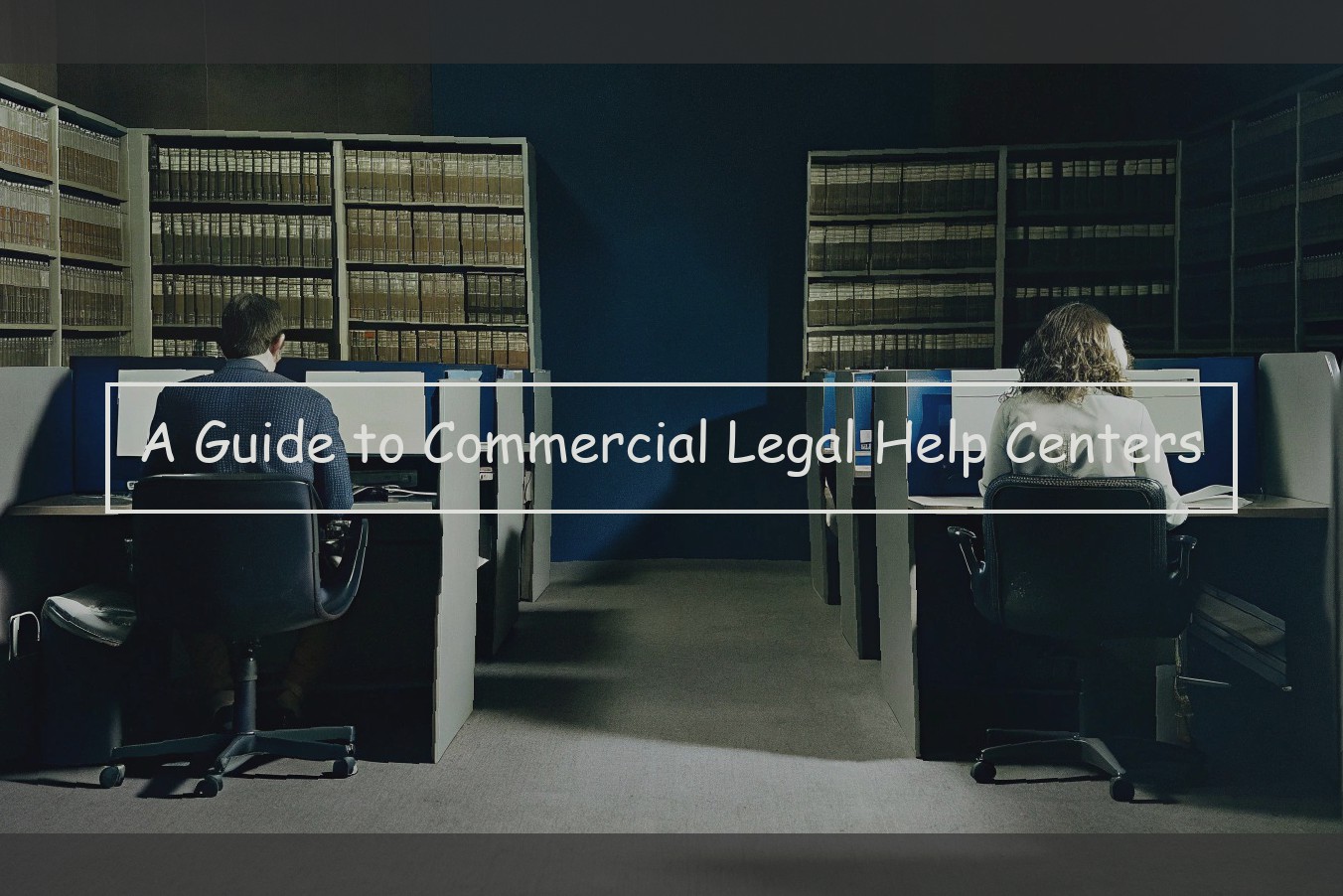
What is a Commercial Legal Help Center
Commercial Legal Help Centers are specialized legal resource centers that provide support and information related to commercial law matters. These centers are designed to assist both businesses and individuals in navigating the complexities of commercial law, offering guidance on a wide range of topics such as corporate formation, contract negotiation, intellectual property rights, and employment law. By providing access to legal resources and support staff who are knowledgeable about these subjects, Commercial Legal Help Centers aim to help users better understand their rights and obligations under the law.
Commercial Legal Help Centers may offer a variety of services for their users, including access to legal databases and research tools , as well as assistance in preparing legal documents or forms. Some centers may also offer walk-in clinics or workshops where users can consult with an attorney or other legal professional on a one-on-one basis. The objective is to ensure that those seeking assistance with commercial legal issues have access to the information and resources they need to make informed decisions.
It is important to note, however, that while Commercial Legal Help Centers can be a valuable resource for those seeking to address commercial legal issues, they typically do not have the capacity to provide comprehensive legal representation or advice. Users seeking complex or specific guidance may need to work with a licensed attorney to receive the necessary assistance.
Services Provided by a Commercial Legal Help Center
Services provided by Commercial Legal Help Centers are diverse. Some are geared toward helping businesses with transaction-related matters; others are designed to help them negotiate conflict, employment and related issues. Regardless of the type of legal need, a commercial legal help center can be your go-to source for all legal support: from routine company formation issues to complex litigation and dispute resolution.
Contracts are at the heart of any business, and the need to review or draft contracts often comes up for companies of all sizes.
Contract review and drafting: Whether you have a simple matter that needs to be reviewed or a complex contracting issue that requires legal support, a commercial legal help center likely has a lawyer who can assist with contract review and drafting.
Business formation: There are several varieties of business structure to choose from, and a legal professional can guide you through the process of deciding which structure is most beneficial. For example, an experienced business law attorney can help you understand the business tax implications, liability issues and operational concerns tied to your various options, like limited liability company (LLC), partnership, corporation or sole proprietorship.
Intellectual property (IP) issues: Almost every business has intellectual property (IP) needs, like copyright, trademark or patent registration. Most also leave themselves legally vulnerable to IP breaches, infringements and other potential violations. For instance, many companies have their legally-protected IP assets divided into two separate legal entities, which makes it more difficult to enforce necessary actions. A commercial legal help center can minimize these and other IP risks, while maximizing your IP value and visibility. For example, reviewing and creating corporate ownership structures, enforcing patents, trade secrets and trademarks, assisting with litigation or disputes and managing IP licensing agreements and royalty collection.
Dispute resolution: Disputes may arise with consumers, business partners, vendors, shareholders, employees, contractors, government agencies and other entities, both nationally and internationally. They may involve the need to draft, review and file litigation documents, mediation, arbitration, administrative hearings, alternative dispute resolution, settlement negotiations, or presenting and arguing cases in state or federal court. A commercial legal help center will usually have a dispute resolution team that can assist with many aspects of dispute resolution and conflict management.
Advantages of a Commercial Legal Help Center
The benefits of a commercial legal help center extend beyond the individual businesses that use them. At the core, a commercial legal help center can reduce litigation and legal problem-solving costs. This means that companies spend less of their resources fighting unfounded lawsuits or negotiating settlements. Even in litigation, by having these legal experts on your side, you are more likely to win favorable settlements before trial, and you start with a better position if you must go to court.
Because commercial legal help centers focus on creating long-term clients by solving legal issues early, businesses enjoy a high level of support. Staffed by dedicated experts in specific practice areas, commercial legal help centers offer a level of support that you cannot find calling a call-in legal aid line. Legal assistance contact are specialized in the field of law relevant to your needs, and typically have an average of 15 years of experience in that area of law. Where a general legal aid line cannot provide that level of expertise, often passing you off to a third-party partner in order to solve your problem, a commercial legal help center has in-house professionals capable of resolving your issue in very short order. Because they can resolve an issue much quicker than a third-party partner vendor, a commercial legal help center also saves your business time. Solutions to legal problems are implemented faster, you receive support without delay, and the time between discovering your problem and noticing improvement is much shorter.
In addition to the benefits the commercial legal help center provides to the client, the commercial legal help center can also benefit the community. When a business uses the services of a commercial legal help center, it shows good faith on the part of that company. Good faith is important for suspension of default, particularly if you have to begin legal proceedings.
How to Select the Best Commercial Legal Help Center
When it comes to selecting the right commercial legal help center for your business, there are several critical criteria you should take into consideration. These centers come in many different shapes and sizes, and as such, not every company will be well-suited for every center.
First and foremost, consider the reputation of the center. This is comparable to looking at the reviews a restaurant has received before you decide on where to eat. Commercial legal help centers are no different. Start with doing a little research on your top choices. Look at the reviews that have been left by their clients. After this, schedule an initial consultation to meet with someone at the center and discuss your business’ needs in greater detail. Get a feel for how the center operates , and evaluate their level of professionalism and customer service.
Another great indicator of whether this will be the right help center for your business is to check its expertise in solutions that are specific to your industry. The more experience the center has in providing services to companies within your industry, the better suited they are to provide you with the commercial legal assistance you need.
Finally, third-party testimonials are another important metric to put stock into when evaluating a commercial legal help center. Reach out to any professional contacts you have in your industry who might have enlisted the help of a similar help center, and ask them about their experiences. Depending on the responses you get, as well as how strongly they feel about the center, you should have a more complete picture of whether they will be the appropriate fit for you.
Case Studies of Commercial Legal Help Centers
Case Study 1: Tech Startup and Patent Acquisition
A tech startup found themselves in need of commercial legal help. They had developed cutting-edge technology but were at risk of having their intellectual property stolen by competitors. As a new business with a tight budget, hiring a full-time patent attorney was not a feasible solution. The company turned to its local bar association’s Commercial Legal Help Center.
The center provided them access to pro-bono legal guidance. An attorney from the local area guided the startup on how to protect their patent.
Today, the company has successfully filed a series of patents and has secured several round of funding.
Case Study 2: Family-owned Restaurant and Licensing Issues
A family-owned restaurant located in a growing metropolitan area was in desperate need of legal advice. They were experiencing rapid growth, to the point where they needed to hire more staff.
Before the restaurant could expand, it would need to hire foreign workers to fill the available spots. They reached out to a Commercial Legal Help Center, focusing specifically on small businesses.
Through the free services, the restaurant was able to obtain the necessary visas. Commercial legal help ensured that the company could move forward with their expansion, which in turn increased their bottom line.
Case Study 3: Nonprofit and Contract Disputes
A nonprofit specializing in women’s issues was involved in a contract dispute with a major educational institution. The nonprofit felt they were being taken advantage of and sought professional legal services. A local commercial law firm specializing in nonprofits told the group to seek qualified attorneys through a Commercial Legal Help Center specializing in nonprofits.
The nonprofit was able to get legal advice for a small fee. This advice assisted them in negotiating a new agreement with the other party and getting the settlement they were hoping for.
Future Developments for Commercial Legal Help Centers
A number of potential future developments in the field of commercial legal help centers could bring substantial changes to the industry. One trend involves the use of Blockchain technology in commercial legal procedures. As an innovative and secure way to track transactions and data, Blockchain has already made waves in areas such as healthcare and finance. Experts believe that continued expansion of Blockchain technology into commercial law could change the landscape of the industry. For example, parties who use smart contracts could track legal transactions without the need for a lawyer.
Artificial Intelligence (AI) could also have a major impact on the field of commercial legal services. Already, dozens of AI software programs are available to attorneys . These programs leverage algorithms and deep learning systems to interpret massive amounts of commercial information. For example, if a businessman wants to determine the best company location based on credit ratings, he could enter information like credit score, industry ratings, and other business factors into an AI software program to generate recommendations.
New changes in business trends may also affect how these centers provide commercial help. Globalization, for example, poses a substantial challenge to many traditional legal structures. Advancements in technology, while creating more opportunities for legal work, increases the competition among legal service providers. Finding ways to make these services profitable will be an ongoing challenge of the coming years.



